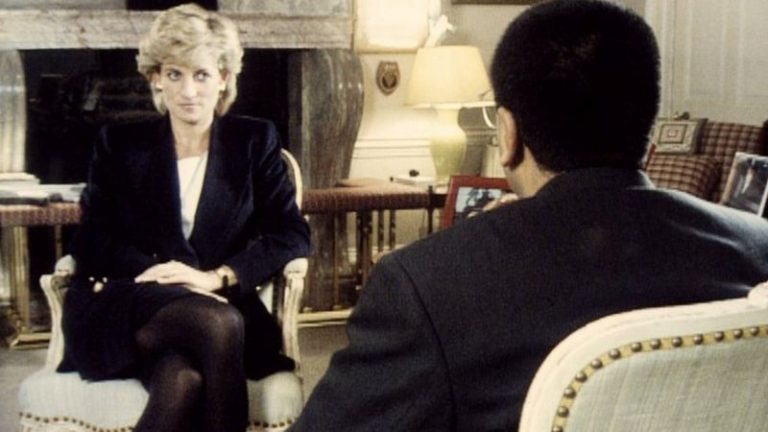Chris Cornell, Soundgarden and Audioslave Frontman, Dies at 52

Chris Cornell, the powerful, dynamic singer whose band Soundgarden was one of the architects of grunge music, died on Wednesday night in Detroit hours after the band had performed there. He was 52.
The death was a suicide by hanging, the Wayne County medical examiner’s office said in a statement released on Thursday afternoon. It said a full autopsy had not yet been completed.
Mr. Cornell’s representative, Brian Bumbery, said in a statement that the death was “sudden and unexpected.”
Soundgarden played at the Fox Theater in Detroit on Wednesday night, and had been scheduled to perform in Columbus, Ohio, on Friday at the Rock on the Range festival.
Dontae Freeman, a spokesman for the Detroit Police Department, said in an interview that officers went to the MGM Grand hotel and casino around midnight in response to a call about an apparent suicide of a white man, whom he did not identify. Mr. Freeman said the man’s date of birth was July 20, 1964, which is Mr. Cornell’s.
He added that the man’s wife had called a family friend to check on the man; the friend forced his way into the man’s room at the casino and found him unresponsive on the bathroom floor with a band around his neck. He was pronounced dead at the scene.
Mr. Cornell appeared to be active on social media in the hours before his death. A post on his Twitter account announced that the group had arrived in Detroit, and a clip of the group’s 2012 release “By Crooked Steps” was posted to his official Facebook page.
Mr. Cornell acknowledged in interviews that he had struggled with drug use throughout his life. In a 1994 Rolling Stone article, he described himself as a “daily drug user at 13” who had quit by the time he turned 14.
After Soundgarden disbanded in 1997, a breakup that would last for more than a decade, Mr. Cornell returned to heavy drug use, telling The Guardian in 2009 that he was a “pioneer” in the abuse of the opiate OxyContin and that he had gone to rehab.
Soundgarden’s musical journeys tended toward the knotty and dark, plunging into off-kilter meters and punctuated by Mr. Cornell’s voice, which could quickly shift from a soulful howl to a gritty growl. Onstage, Mr. Cornell was an imposing figure, flinging his long hair as he presided over mosh pits of fans churning to the band’s metal-tinged riffs.
Mr. Cornell was one of four prominent frontmen — along with Kurt Cobain of Nirvana, Eddie Vedder of Pearl Jam and Layne Staley of Alice in Chains — who brought Seattle’s sound to the national stage in the late 1980s and 1990s. He helped form Soundgarden in Seattle, where he was born, around 1984. Sub Pop, then a fledgling record label, released the group’s first single, “Hunted Down,” in 1987, as well as two subsequent EPs. The group’s debut album, “Ultramega OK,” which came a year later on the punk label SST, was its last release before it made the leap to a major label.
The album “Badmotorfinger,” released in 1991, benefited from a swell of attention that was beginning to surround the Seattle scene, where Soundgarden, along with Nirvana and Pearl Jam, was playing a high-octane, high-angst brand of rock ’n’ roll.
Three of Soundgarden’s studio albums have been certified platinum, including “Superunknown,” from 1994, which featured the Grammy-winning songs “Black Hole Sun” and “Spoonman” as well as “Fell on Black Days” and “My Wave.”
After disbanding, the group — which includes the guitarist Kim Thayil, the bassist Ben Shepherd and the drummer Matt Cameron — reunited in 2010 and has performed regularly since then.
Reviewing a 2011 concert at the Prudential Center in Newark in The New York Times, Jon Pareles called Soundgarden “one reunited band that can pick up right where it left off.” In 2012, it released “King Animal,” its first album in 16 years, which Mr. Pareles said “sounds like four musicians live in a room, making music that clenches and unclenches like a fist.”
Mr. Cornell grew up in Seattle, the youngest of six children, and has said that he spent a lot of time in trouble as a child — he was kicked out of seventh grade once and eighth grade twice, he told Rolling Stone in a 1994 interview, and said that he struggled with drugs and then loneliness and depression. He dropped out of school at 14 after his parents’ divorce and got a job to help support his mother, he told Spin magazine in 1996.
Music became a refuge, and Mr. Cornell started to take it very seriously. He has said he was drawn to the harmonies of the Beatles early on, and started to play drums at 16. His first group was called the Jones Street Band (named after the street he lived on), and Mr. Cornell played the role of the singing drummer. After answering an ad to be a vocalist in another band, he met Mr. Thayil and Hiro Yamamoto, Soundgarden’s original bassist, and the trio quickly wrote a batch of songs.
He married Susan Silver, who managed Soundgarden and Alice in Chains, in 1990, and had a daughter, Lily; the couple split in 2004. Mr. Cornell is survived by Lily; his wife, Vicky Cornell, with whom he started a foundation to protect “vulnerable children”; and their two children, Christopher and Toni.
Mr. Cornell released five solo albums during and after his time with Soundgarden, starting with “Euphoria Morning” in 1999. His 2007 album “Carry On” featured an acoustic cover of Michael Jackson’s “Billie Jean,” which was the inspiration for a well-received version of the song on “American Idol.”
He contributed the song “Seasons” to the soundtrack of “Singles” (1992), Cameron Crowe’s love letter to the Seattle music scene, and made a cameo in the film.
In 2001, after Rage Against the Machine’s lead singer, Zack de la Rocha, left the group, Mr. Cornell and members of that band formed Audioslave. The group released three albums before announcing its split in 2007.
In November 2016, Mr. Cornell hit the road for the first time with another supergroup, Temple of the Dog, featuring a blend of members of Soundgarden and Pearl Jam. The band, known for its breakout hit “Hunger Strike,” a dramatic duet between Mr. Vedder and Mr. Cornell, had been formed about 25 years earlier as a tribute to Andrew Wood, the lead singer of the Seattle bands Malfunkshun and Mother Love Bone, who died of a heroin overdose in March 1990.
Mr. Cornell told The Times that the group had finally decided to bring its songs to life to honor Mr. Wood. He said, “I thought, well, this is one thing that I can do to remind myself and maybe other people of who this guy is and was and keep his story — and, in a way, his life — with us.”
A close friend, Eric Esrailian, whose family regularly took vacations with the Cornells, said Mr. Cornell was never the bold persona he seemed onstage. “He liked to take pictures of our kids at dinner, just talking to each other,” Mr. Esrailian said, adding that “In 10 years of friendship, I’ve never seen him have more than a Diet Coke.” He said he had seen no mood changes in recent days or weeks. “We were talking about summer vacation plans in Greece,” he said.
Mr. Esrailian produced the 2017 movie “The Promise,” about the Armenian genocide, for which Mr. Cornell wrote music and donated the proceeds from all audio downloads to help refugees. “He wanted his song to be an anthem about hope and perseverance for everyone,” he said.
Mr. Esrailian told a story about Mr. Cornell’s giving him a guitar for his birthday, signed by Jimmy Page of Led Zeppelin. “I’m a fan of Jimmy Page, and Jimmy Page is a fan of Chris Cornell,” he said. “This is the same guy we’d eat sushi with and he’d make jokes.”
When Pearl Jam was inducted into the Rock & Roll Hall of Fame last month, Mr. Esrailian said he told his friend that he belonged there as well: “He said, I don’t need that now, because I’ve got so much ahead of me.”
Source.THENEWYORKTIMES






